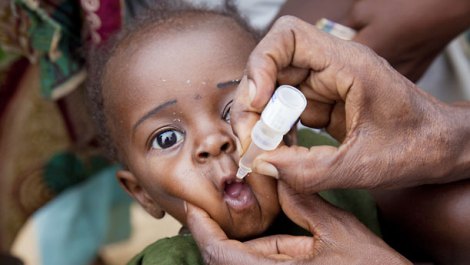Today UNICEF released a new report called A Promise Renewed, which includes the latest global figures on child mortality.
One of the Millennium Development Goals is to reduce the figure for under-5 mortality by two-thirds by 2015, and UNICEF’s new report shows how well the international community is doing at achieving that goal.
I recently returned from Malawi, where I saw how the country, despite being one of the poorest in the world, has not only achieved its child survival goal, but reached the milestone a year ahead of schedule.
Since the MDGs were agreed, Malawi has made tremendous progress in lowering child mortality, cutting under-5 deaths by 71%. The country offers real an excellent example for other low-income countries in sub-Saharan Africa and around the world.
What I found incredible is how simple the actions Malawi has taken to reduce child mortality have been. Their continued success is in a large part attributable to holistic, cost-effective health interventions, through a community-based approach. From ensuring that every child receives their immunisations, to the increased use of bed nets to prevent malaria, Malawi has shown that low-cost measures that reach every child can make a significant difference in saving children’s lives.
One of the biggest factors for Malawi is the country’s expanding network of community health workers. The health workers, or Health Surveillance Assistants as they are called in Malawi, form a key part of the government health system. Trained by UNICEF, they live in the villages and communities they serve, often in remote areas. They are able to identify and treat cases early, often without the patient having to seek further care at the local health centre, which could be a long way away.
The health workers are able to treat many people in their homes or in a nearby village clinic. Through training and drug supplies supported by UNICEF, they are given clear guidance on how to treat the conditions presented. Although they are not trained doctors, and are therefore limited in what they can treat, they can catch diarrhoea, pneumonia and malaria, the biggest killers of children in Malawi, before it’s too late.
The community health workers are also a key part of Malawi’s national immunisation programme, as the Under-5 clinics, where mothers can bring their children to receive routine check-ups, as well as their recommended vaccines and immunisations, take place in the community, minimizing the travel times for mothers, and increasing the coverage rates to more than 90% in most areas.
Malawi has shown what a huge impact seemingly simple interventions can have. However despite all of the good news, there is still a long way to go. Malnutrition, HIV/AIDS, poverty and access to healthcare still present huge challenges for the country, particularly in more rural areas. Whilst much has been achieved, preventable childhood diseases and illnesses remain constant challenges for children and families.
 Grace with her son Junior at the Bwaila Maternity Hospital, Lilongwe
Grace with her son Junior at the Bwaila Maternity Hospital, Lilongwe
UNICEF/Malawi 2014/Matas
In Malawi, and across the world good progress has been made in reducing child mortality. However as the numbers of under-five deaths have dropped, a greater proportion of those deaths have occurred in the first hours and weeks of life . As newborn survival and health were not specifically addressed in the MDGs it has consequently received less attention and investment. Now is the time for the global health community to prioritise this unfinished agenda.
This is why it is incredibly important that the emerging development agenda continue the work of the MDGs, with a renewed focus on the hardest-to-reach communities, and extra effort on making sure that every child is able to grow up healthy and strong, and access affordable, quality health services and care.
The MDGs come to an end in 2015, and as discussions continue on the next set of goals, we must ensure a clear focus on child and maternal health, providing a goal for maternal mortality, ending of newborn and under-five preventable deaths. Malawi has shown what can be achieved; we must make sure the rest of the world can follow their example.
Read UNICEF’s A Promise Renewed report

.jpeg&w=60&q=100&h=60)




.jpeg&w=60&q=100&h=60)





